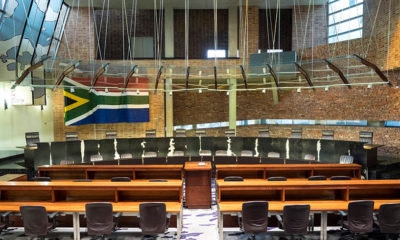News
Court Slams Tshwane’s ‘Unlawful’ Cleaning Levy And Residents Finally Get Relief

Court Gives Tshwane Residents a Break, But Trouble Still Looms for the City
Residents win a crucial round in a long, messy battle over a controversial “cleaning levy.”
For months, Tshwane households have been fighting off a stubborn line item on their municipal accounts a R194-per-month “cleaning levy” that many never agreed to, didn’t understand, and in some cases, didn’t even owe.
This week, the High Court delivered yet another blow to the City of Tshwane, lifting the suspension of its earlier ruling that had already declared the levy unlawful. In short:
The city must stop charging the levy immediately and reimburse residents who paid it.
The order stands even while Tshwane tries to appeal although the court made it clear that the city’s chances of overturning the decision are slim.
A Levy That Never Quite Made Sense
The cleaning levy was quietly baked into Tshwane’s latest budget, pitched as a way to recover costs from so-called “freeloaders” an estimated 250,000 residents whom the city claimed benefit indirectly from its waste services but do not technically use municipal collection.
The city projected a sizable R540 million cash boost from the fee.
But the idea never sat well with residents, many of whom live in sectional title units where waste services are already covered by body corporates. Those residents were billed anyway and in some cases even threatened with credit-control action for not paying.
Online, frustration brewed for months.
“We’re paying for a service we never get. How does that make sense?”
one resident complained in a popular Pretoria community group.
AfriForum Takes the Gloves Off
Civil rights organisation AfriForum challenged the levy in the Pretoria High Court and the judgment was blistering.
The court accused the city of:
-
Relying on a 2016 bylaw it could not produce,
-
Flooding the court with irrelevant documents,
-
Dodging the legal framework it was meant to follow, and
-
Sending a team of advocates with poorly prepared arguments, including one senior advocate who was “unavailable” throughout the hearing.
The levy was declared unlawful and set aside.
When Tshwane refused to stop billing residents anyway, AfriForum went back to court to have the suspension lifted. To win, they had to prove that residents faced irreparable harm while the city faced little to no real risk.
They succeeded.
The Human Cost That Swayed the Court
AfriForum presented two residents’ cases that moved the needle:
-
A resident double-billed even after the city admitted its mistake, then threatened with service interruption just weeks later.
-
A pensioner who said the levy would force her to choose between essential expenses or possibly having to move.
These personal stories highlighted a real-world impact far beyond spreadsheets and budget allocations.
The court dismissed Tshwane’s argument that the situation was being “exaggerated,” noting that even the city’s own mayor had earlier confirmed that the levy income had not been allocated for service delivery, meaning Tshwane wouldn’t suffer if the charge was halted.
Where Does This Leave Residents?
For now:
No levy. Refunds due. No credit-control threats.
Residents can expect their accounts to be credited, and the city is barred from charging the R194 fee unless it somehow wins its appeal, which, according to the court, appears unlikely.
This ruling also sends a strong warning to other metros experimenting with creative revenue-generation mechanisms. In fact, another major levy battle, involving the City of Cape Town is heading to court in December, with Sapoa and AfriForum challenging charges linked to property valuations.
South Africans across social media are already asking:
Is this the beginning of a national reset on questionable municipal tariffs?
A Broader Trust Issue
Beyond the courtroom, this saga reflects a bigger challenge:
Residents trust municipalities less and less, especially when billing errors and legal contradictions become the norm instead of the exception.
For a city that can’t afford more public distrust, Tshwane now faces a reputational stumble, financial setbacks, and further battles in higher courts.
But for residents, the immediate victory offers a rare moment of relief in a landscape where municipal bills only seem to climb.
For now, Tshwane’s controversial cleaning levy is dead in the water and this time, the court made sure it stays that way.
{Source: Moneyweb}
Follow Joburg ETC on Facebook, Twitter , TikTok and Instagram
For more News in Johannesburg, visit joburgetc.com



























